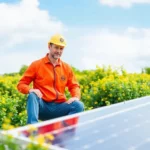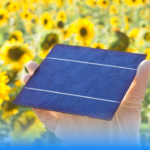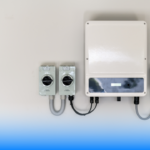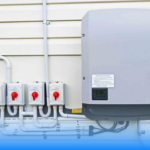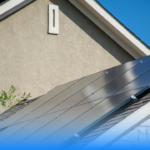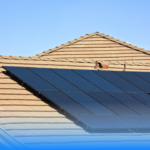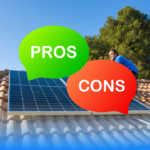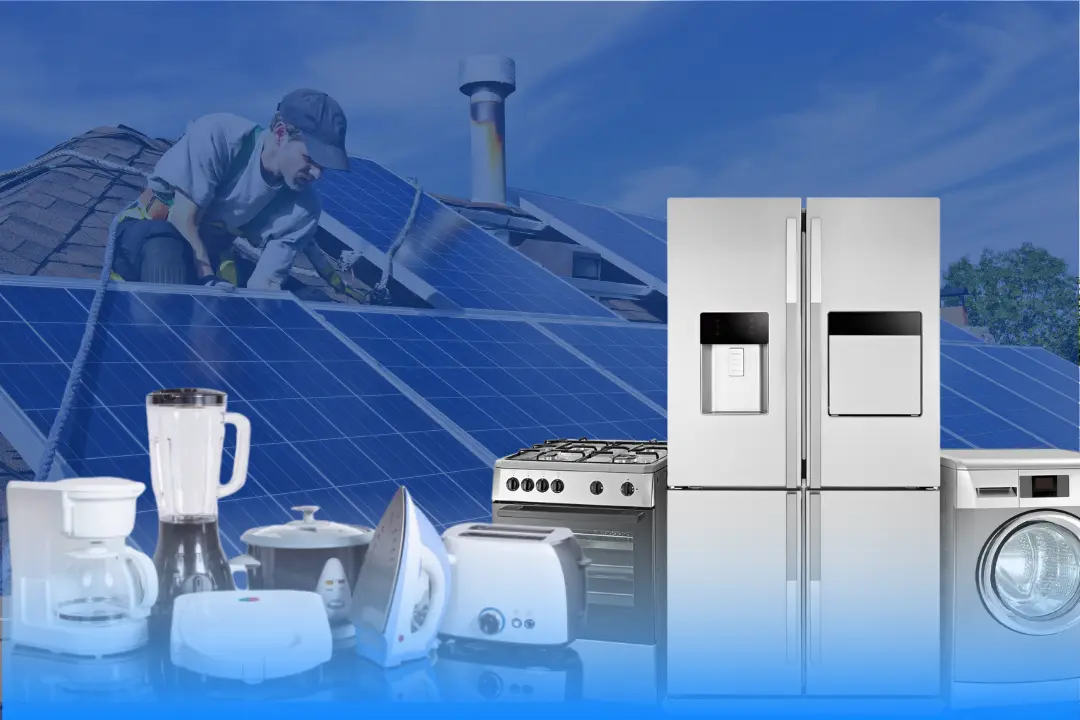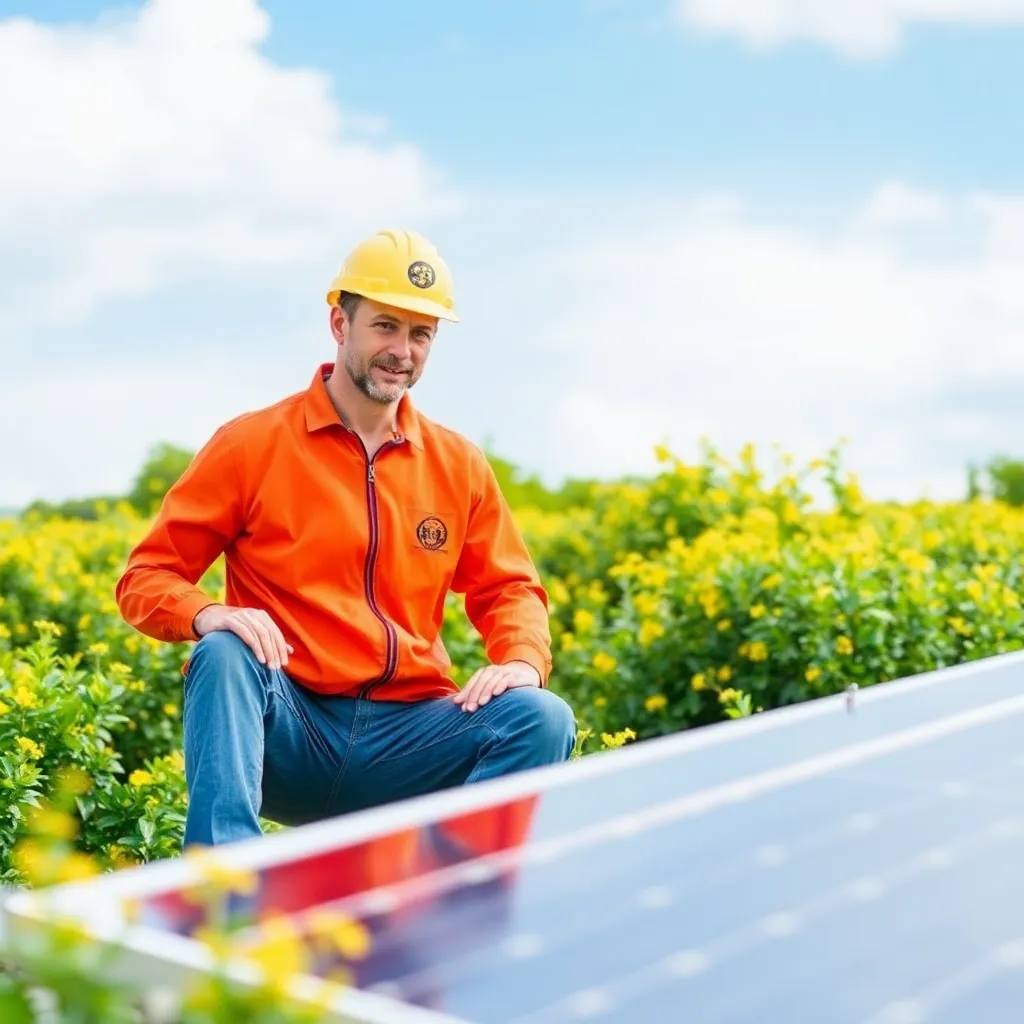Is Your Roof Solar Panel Friendly? A Homeowner’s Checklist
In today’s world, solar energy is becoming an increasingly popular option for homeowners looking to reduce their carbon footprint and save on energy bills. However, before you make the investment, it’s essential to determine if your roof is suitable for solar panels. This comprehensive guide will walk you through everything you need to know to assess whether your roof is solar panel friendly.
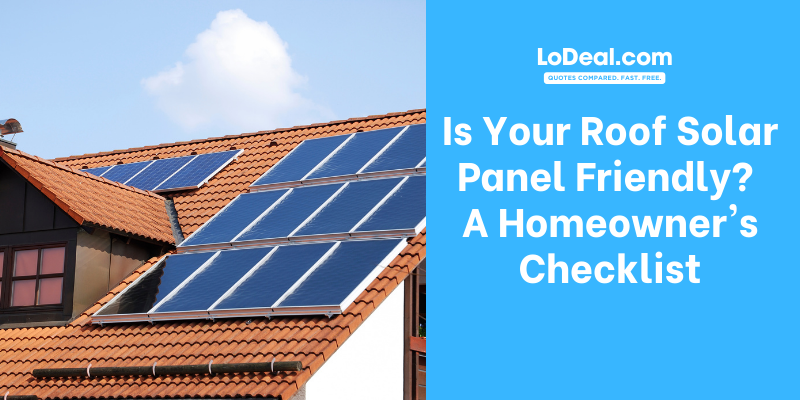
Understanding Solar Panel Requirements
Before diving into the specifics of your roof, it’s crucial to understand the basic requirements of solar panels. Solar panels need adequate sunlight to generate electricity efficiently. Factors such as roof orientation, tilt, and shading play a significant role in the performance of your solar panel system.
Roof Orientation and Angle
The Importance of Roof Orientation
The orientation of your roof is vital for optimal solar energy production. In the UK, the best direction for solar panels is south-facing. This orientation allows the panels to capture the maximum amount of sunlight throughout the day. However, east and west-facing roofs can also be effective, though they might produce less energy compared to a south-facing roof.
Ideal Roof Angle for Solar Panels
The angle or pitch of your roof also affects the efficiency of solar panels. The optimal roof pitch for solar panels in the UK is between 30 to 40 degrees. This angle allows the panels to receive the maximum amount of sunlight. If your roof pitch is too steep or too flat, it might reduce the efficiency of your solar energy system.
Roof Material and Condition
Suitable Roof Materials
Most roofing materials are suitable for solar panels, but some are more solar-friendly than others. Asphalt shingles, metal, and tile roofs are generally considered the best options for solar installations. These materials provide a sturdy foundation for the panels and are relatively easy for installers to work with.
Assessing Roof Condition
Before installing solar panels, it’s essential to assess the condition of your roof. A roof in poor condition might need repairs or even a complete replacement before installation. Look for signs of wear and tear, such as missing shingles, leaks, or structural damage. A well-maintained roof ensures the longevity and safety of your solar panel system.
Evaluating Shading and Sunlight Exposure
Impact of Shading on Solar Panels
Shading is one of the biggest factors that can affect the performance of your solar panels. Trees, chimneys, and neighbouring buildings can cast shadows on your roof, reducing the amount of sunlight your panels receive. It’s important to evaluate the shading on your roof throughout the day and across different seasons.
Conducting a Solar Site Survey
A professional solar site survey can help you understand the amount of sunlight your roof receives and identify any shading issues. This survey typically includes an assessment of your roof’s orientation, pitch, and shading, providing valuable information for the optimal placement of your solar panels.
Roof Size and Space Requirements
Calculating Roof Space
The amount of available roof space is another critical factor in determining if your roof is suitable for solar panels. Calculate the total roof area and then subtract any obstructions such as vents, chimneys, or skylights. The remaining space will give you an idea of how many solar panels can be installed.
| Roof Area | Obstructions | Available Space |
|---|---|---|
| 100m² | 10m² | 90m² |
| 120m² | 15m² | 105m² |
| 150m² | 20m² | 130m² |
System Size and Energy Needs
The size of your solar panel system should match your energy needs. A typical residential solar panel system requires between 300 to 400 square feet of roof space. Understanding your energy consumption and how much power you want to generate will help you determine the appropriate system size and the amount of roof space required.
Structural Integrity and Load-Bearing Capacity
Assessing Structural Strength
Solar panels add extra weight to your roof, so it’s crucial to ensure that your roof can support the additional load. A structural engineer can evaluate your roof’s load-bearing capacity and determine if any reinforcements are needed. This assessment is especially important for older homes or roofs with unique designs.
Reinforcing Your Roof
If your roof lacks the necessary strength to support a solar panel system, you might need to make structural modifications. Reinforcements can include adding support beams or strengthening the existing roof structure. While this might increase the initial cost, it ensures the safety and durability of your solar panel installation.
Permits and Local Regulations
Understanding Local Building Codes
Before installing solar panels, familiarize yourself with local building codes and regulations. Permits are typically required for solar panel installations, and the process can vary depending on your location. Understanding the legal requirements ensures a smooth installation process and helps avoid potential fines or delays.
Working with Professional Installers
Professional solar panel installers are well-versed in local regulations and can assist you with obtaining the necessary permits. They can also provide valuable insights into the best practices for solar panel installation, ensuring compliance with all legal requirements.
Financial Incentives and Return on Investment
Exploring Financial Incentives
There are various financial incentives available to homeowners who install solar panels. These can include government grants, tax credits, and rebates. Researching and taking advantage of these incentives can significantly reduce the initial cost of your solar panel system.
Calculating Return on Investment
Solar panels are a long-term investment, and understanding the return on investment (ROI) is crucial. Calculate the potential savings on your energy bills and compare them to the initial installation costs. Many homeowners find that solar panels pay for themselves within 7 to 10 years, after which they enjoy free electricity and additional savings.
Maintenance and Longevity of Solar Panels
Regular Maintenance Requirements
Solar panels require minimal maintenance, but regular cleaning and inspections can ensure optimal performance. Removing debris, dust, and bird droppings from the panels helps maintain their efficiency. Additionally, scheduling annual inspections with a professional can identify and address any potential issues early.
Expected Lifespan of Solar Panels
Most solar panels come with a warranty of 25 years or more, and they can continue to generate electricity even beyond their warranty period. However, their efficiency might decrease slightly over time. Investing in high-quality panels and ensuring proper maintenance can maximise their lifespan and performance.
The Environmental Impact of Solar Panels
Reducing Carbon Footprint
One of the primary reasons homeowners opt for solar panels is to reduce their carbon footprint. Solar energy is a clean, renewable source of power that significantly reduces greenhouse gas emissions. By installing solar panels, you contribute to a more sustainable and eco-friendly future.
Promoting Renewable Energy
Supporting renewable energy sources like solar power helps reduce our reliance on fossil fuels. This shift towards renewable energy promotes energy independence and helps combat climate change. By choosing solar panels, you play a part in promoting a greener, more sustainable energy landscape.
Conclusion
Determining if your roof is solar panel friendly involves assessing various factors such as roof orientation, angle, material, condition, shading, space, and structural integrity. By thoroughly evaluating these aspects, you can ensure that your solar panel system will be efficient, safe, and long-lasting. Additionally, understanding local regulations, financial incentives, and maintenance requirements will help you make an informed decision. Investing in solar panels not only provides financial benefits but also contributes to a cleaner and more sustainable environment. So, if you’re ready to harness the sun’s power, start by using this checklist to determine if your roof is ready for solar panels.

